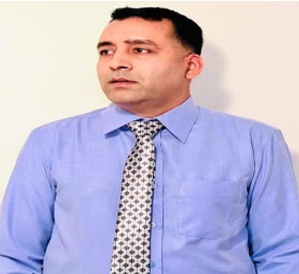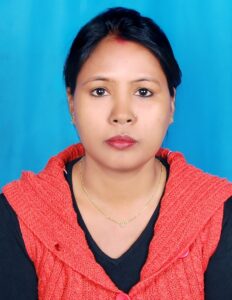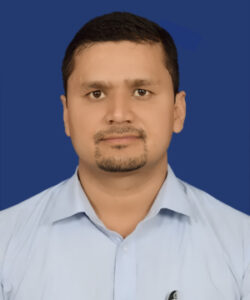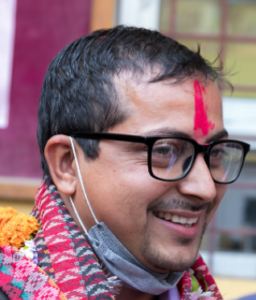
Aristotle urges us to be a master of metaphors to grasp a living reality of a thing. Following the footsteps of Aristotle, George Lakoff and M. Johnson introduce a perspective on metaphor—a perspective that takes metaphor as imaginative rationality. Admittedly, I am inspired by these two theorists. My inspiration is that I could not help using a simile to share my modest success in getting some of my responses to Call for Conference Proposals (CFP) accepted: Writing changes: remaking rhetoric in times of uncertainty organized by Corridors 2022 at Virginia Tech University, and Geographies of the Fantastic and the Quotidian organized by Pacific Ancient and Modern Language Association (PAMLA) 2022 at University of Los Angeles California. For Corridors, I developed a paper entitled “Pedagogical Emasculation in the Wake of AI’s Growing Applications”, and for PAMLA, I submitted an abstract with the title “Backsliding New Materialism and a Resurgence of Interest in Virtue Ethics and Anthropomorphism”.
While responding to these two CFPs successfully, I came to know that responding to a CFP is almost similar to being a gentleman caller. Forgive my wild rush to John Dryden called ‘yoking heterogeneous ideas by violence’. More technically, responding to CFP and being a gentleman caller are distinctly disparate realms of activities. Just as forwarding a love/marriage proposal without paying sufficient courtship to a lady for a quite bit of time may backfire and probably end in rejection, so is answering to CFP without doing an extensive inquiry and without having background information on the topic. Any rush to reply to the CFP may backfire on the responder, often ending in outright rejection, which might weaken confidence and concentration. It is this point of commonality that pushed me to choose this figural trope. The fate of being a jilted lover is a bitter pill to swallow for any obsessed lover, in much the same way as it is for a responder to cope with the rejection of the abstract submission to CFP. With this figural gesture, I would like to reflect on my experience of responding to a host of CFPs.
We have seen many calls for proposals (CFP): CFP for conferences; CFP for book chapters and journal articles; CFP for intermezzo and review essays; CFP for web texts and digital projects; CFP for a success story and cross-border narrative; CFP for blogs and reflective writings, CFP for cases of advocacy, activism, and intervention; and to name just a few. Scholars, researchers, and instructors alike tend to respond to different CFPs they come across. Every responder to CFP deploys a nuanced approach. In spite of each scholar’s unique response style to CFP, there should be a few widely practised formularies to deal with CFP. Based on a few instances of my success in responding to CFP, I would like to craft a short account of responding to CFP.
In trying to emerge as a conference hopper, I kept exploring many other venues that organize national and international conferences such as the New Berry Library Conference (NBLC), Popular Culture Association (PCA), Modern Language Association (MLA) Pedagogical Training and Workshop, Northeast Modern Language Association (NEMLA), Conference on College Composition and Communication (CCCC), Rhetoric Society of Europe (RSE), Rhetoric Society of America (RSA) and the list goes on. Actually, these venues release CFPs that tend to address any aspect of burgeoning issues, ranging from colonial reckoning, the rhetoric of precarity and the rise of authoritarianism to social justice, the linguistic justice, power and precarity attendant to AI’s growing application in learning and teaching space. Being well informed of all these burgeoning issues and of relevant proposals to address the issue constitute a core competency on each CFP responder’s part. Based on these two and various other successive experiences of responding to CFP, I would like to talk about some tips and strategies with which I succeeded in getting my conference proposals approved. I presented at a conference scheduled to take place at the University of Virginia Tech. Similarly, another conference proposal of mine was also accepted. In the second week of November 2022, I presented at a conference at the University of California, Los Angeles.
First, getting to the heart of an issue that takes centre stage in the CFP description is essential if we are to touch all the bases of CFP. While describing an issue/topic for CFP, the CFP issuer tends to be specific in producing an outline of the issue; at the same time, they often write, ‘the CFP moves around this topic, but not limited to…’, to allow for a somewhat flexible space to explore and probe the proposed issue.
Previously, while formulating an excellent abstract draft for a conference call, I used to take a general approach without homing in on a specific aspect of the CFP. After multiple rounds of rejection, I learned that people want to listen to specific things. Though the conference offers a smorgasbord of various potential topics, it would be in our best interest to dwell on the specificity of the issue. As soon as I shirked off this tendency to drift away from the axis of specificity, I realized that it wouldn’t be challenging to hit the target with the single most focused thrust to the specificity. To this end, it appears that any temptation toward delving deep into the topic in a manner most lithe and supple because exploring any issue by being specific is crucial to the acceptance success of a response to CFP. As to some heuristics and nuances with which the exploration of an issue would lead to a reliable unfolding of the issue, I have come to propose here: Test the efficacy of the issue in different cultural contexts, check on its limit, be aware of its fallibility, assess if its relevance is rooted in time and occasion, reflect on its impact on our normative practice and pragmatic life, and finally stretch your imaginative faculty to probe the issue under consideration with a detached mindset. The simultaneous shifts in my mindset led me to come across an acceptable topic for the CFP I was managing to respond to.
Second, though the power of forming a fresh, attention-grabbing, and shift-stimulating perspective of any responder to CFP is highly valued, the ability to introduce this perspective tactfully and without a lag matters the most. To translate this realization into action, I reflected on my expectations about how CFP evaluators take my abstract submission and what metric they would apply to assess the submitted abstract. I also pondered if their metrics and criteria remain consistent or if they apply abstract-specific metrics. I did my best to align the core thrust of my conference abstract with the CFP evaluators’ submission-specific yardstick of judgment. At the top of my talent, I aimed at ‘striking the right chord’; with the right chord being struck precisely, the net outcome is an acceptance call.
Third, the responder to CFP should not come to terms with the issue on the first go. Instead, the responder should let the proposed issue come to terms with a cumulative effort to develop a fresh perspective. For this, curious and consistent immersion in the latent and the manifest dimensions of the issue is required of those who play what Peter Elbow calls the Believing and Doubting Game. The fourth point is the assertion that with the idea of responding to CFP comes the responsibility to CFP. CFP wishes to garner a wide range of ideas, thoughts, propositions, perspectives, comments, questions, critiques, and curiosities. Most CFPs expect a concrete contribution of ideas to the platform the CFP is creating. Thus, every responder to CFP needs to internalize that to respond to CFP is to contribute something new, a fresh perspective, a nuanced approach to dealing with the proposed issue anew, a distinct approach indeed!
The fifth point that guided my approach to responding to CFPs is being aware that often CFPs asks for a fresh take on burgeoning issue/problem. Any response to CFP should look like a solution. Adopting a down-to-earth overture is a curtain-raiser to grappling with CFP head-on. The sixth tip comes in the guise of tonality. Maintaining an insistent tone serves two-pronged purposes: one is to bracket off any interference from digressive and deluding thoughts, and the other is to help the proposed perspective gain purchase. The use of an insistent tone wards off any trace of opaqueness that might arise while homing in on the target expectation of CFP. A response to CFP needs to be formed in keeping with the persistent presumption that whether others accept a proposal or not hinges on the same tone underpinning the proposal’s substratum.
The seventh clue to conveying a response to CFP is tricky. Throughout career-building in the academic field, students, scholars, and instructors respond to different types of CFP. Their responses often vary from acceptance and partial acceptance to outright rejection. In the case of outright rejection, it might be tough to bear the brunt of rejection, which might sap the spirit and entelechy one has been cultivating since the beginning of one’s academic footprint. In this condition of being in a low spirit due to sporadic rejection, one must groom oneself with a philosophical maxim, dictum, or conviction. In the wake of angst and anxiety consequent upon the rejection of any response to CFP, it would be tactful if one with the experience of rejection switches instantly from the erstwhile mental frame of lapsing into frustration and lamentation to a new mindset informed by the conviction that having been rejected means being hurled on the rose bed of renewal.
The last trick that may prove pivotal is catching a glimpse of and acting following the zeitgeist of contemporaneity that by and now diffuses across the world of CFPs. The spirit and entelechy of inclusion have penetrated every stroke of knowledge-making. Any linguistic shred and fragment are redolent of an alienating, exclusionary, and unjust practice, triggering a domino effect that ultimately spoils the inherent acceptability of the proposed perspective, no matter how full the proposal would be. All these strategic clues ultimately come down to a praxis that justice-fostering, dignity-ennobling, and identity-acknowledging rather than a collocational, standardized, and stereotypes-filled language pave the way for enriching the acceptability of proposed response to CFP.
Graduate students preparing to enter the job market are always hard-pressed to devote their whole time to completing their dissertation research. Nevertheless, they must invest more time in responding to CFPs for conferences, book reviews, review essays, success narratives, cross-border narratives, writing about their observation, and reflective writing. Since responding to the CFPs for a book chapter, journal articles, and intermezzo requires both intensive and extensive efforts, involvement, and time, it is relevant to conclude that trying to catch low-hanging fruit is an appropriate option for them. However, in no way should it not be understood as an underestimation of the potency and potentiality of graduate students inching closer to a threshold of the job market because there is quite an incredible number of graduate students who have already adorned their CVs with gems of their productive scholarship. However, speaking from a practical perspective and arguing in consideration of the pressure of time, including plenty of both teaching and administrative responsibility on the part of graduate students, there is every reason to advise that trying to catch low-hanging fruit still sounds like a lucrative and economical alternative for graduate students. In connection with this, responding to the CFPs for a conference, book review, review essay, essay on graduate student’s observation, and reflective writing such as cross-border narrative would be inviting and enticing for Ph.D. candidates on the verge of graduation who have built up a professional mindset of plunging into the job market soon.
At last, I would like to opine my thoughts on a type of stereotype that recurs in most of the announcements of CFP. On seeing sentences—such as ‘for book reviews and review essays, graduate students are encouraged and welcomed to contribute’—I felt irreparably stung by a scorpion of inferiority and of being pigeonholed. A query flashed across my mind instantly. There anyone, including me, could not but ask a question—why cannot graduate students, especially PhD candidates, respond to higher CFPs? The answer is obvious. In a general sense, responding to the higher CFPs demands time, resources and involvement. Graduate students are busy people who have a lot of work to do. I too was not an exception to this condition. Therefore, I was occasionally pained to see this sentence, but now I have mastered such a normal thought. With this unpleasant stream of thought, I would like to cut a long story short by saying that trying to catch low-hanging fruit—CFPs for conferences, book reviews, review essays, and reflective and observational writings—is a wise approach to redressing the harsh rhetoric of publish or perish. For clarity’s sake, I have presented below some pointers that could be helpful for any responder responding to a CFP:
- Read and understand the CFP: It is in our best interest to go through the CFP document to understand the theme, topic, and requirements. Supportive here is the idea of paying attention to guidelines, word limits, formatting instructions, and submission deadlines.
- Choose the right topic: Selecting a topic that aligns well with the theme of the conference or event is of enormous importance. Responders ought to make sure their research is relevant and innovative. Being mindful of the contributions the responder’s abstract makes is worth pondering.
- Prepare an abstract: Of all the pointers pivotal to making a success of responding to CFP, crafting a compelling abstract that summarizes our paper or presentation is instrumental. So, the responder needs to clearly state the problem they are addressing, their methodological choice, and critical ideas and insights. It is good to ensure that the abstract is concise and engaging. The most crucial thing is the need to capture the attention of the reviewers.
- Follow the submission guidelines: Successful responders to CFP ought to adhere to the submission guidelines provided by the organizers. They should pay close attention to formatting requirements, citation styles, and any specific file formats they may request.
- Highlight your contribution: Each scholarly and institutional venue tends to judge an individual contributor to CFP in terms of their contribution. To that end, it is essential for them to clearly articulate the unique contribution of their work. The key to mastering this hurdle is to explain how it fills a gap in the existing literature, provides novel insights, or offers a fresh perspective. The responder need not dither about emphasizing their research’s significance and potential impact.
- Present your qualifications: In an age in which an assertion is evaluated vis-à-vis self, highlighting our expertise, qualifications, and relevant experience in the field we are part of is of paramount importance. To buttress our credibility as responders to CFPs, providing a brief overview of our academic or professional background is imperative to establish credibility.
- Proofread and edit: Before turning in our response to CFPs, it would be a cautionary measure to carefully proofread and edit our paper or abstract. If we ensure that our abstract is well-structured, free of grammatical errors, and coherent, it will be accepted. This is the principle we all need to live by. For that purpose, we can opt for feedback on our abstract from colleagues or mentors to improve the quality of our writing.
- Meet the deadline: Submitting our response without crossing the specified deadline is advantageous because late submissions are typically not accepted. Hence, being proactive and active while planning our time and allowing for ample review and revision is of utmost importance.
- Tailor your response: What matters most is the customization of our response to the specific requirements of the CFP. Reviewers are interested in hearing specific things; no one likes hearing general things. Thus, it is good to keep any idea of submitting generic or recycled content at bay. Tuning our response with the particular and genuine requirement is pivotal to actualizing the chance of acceptance.
- Be professional and courteous: Since being soft and gracious matters a lot, it would be beneficial if they interact with the organizers and reviewers professionally and respectfully if they respond promptly to any inquiries or requests for additional information. The secret formulary to heighten our chance of having our abstract approved is one associated with living with a growth mindset and collaborative disposition throughout the process.
Works Cited
Garver, E. (1994). Aristotle’s rhetoric: An art of character. University of Chicago Press.
Lakoff, G., & Johnson, M. (2008). Metaphors we live by. University of Chicago Press.
About the Author: Shiva Mainaly is a PhD in rhetoric and composition from the University of Louisville. Currently, at North Dakota State University (NDSU), he will become a postdoctoral research fellow from August 2023. A prolific author, he has published numerous articles in prestigious journals like the Journal of International Students, Constellation, and Composition Studies.





